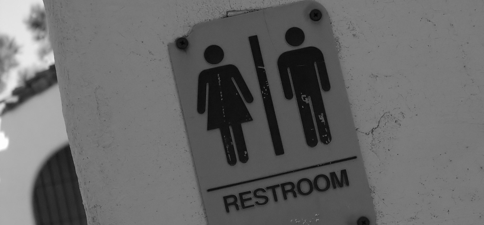After being sent to study during the 2007-2008 legislative session, the Bathroom Bill came back in early 2009—and supporters garnered over 100 sponsors, by misleading legislators about the bill. According to some, they even implied it would not impact bathrooms.
But HB 1728, the Bathroom Bill, impacts all places of public accommodation. Designed to help gender-confused individuals, HB 1728 would add the vague category of “gender identity or expression” to the state ban on discrimination. Among the negative consequences of this law are: a) school children would be taught that they can change their gender if they want and b) women and children would be put at risk since access to sensitive areas such as single-sex bathrooms, locker rooms, and c) women-only fitness facilities would be open to anyone, regardless of biological sex, and d) anyone speaking out against it could be charged with a “hate crime.”
In Maine, where similar legislation has passed, a state Commission on Discrimination is trying to determine its impact on elementary schools after several lawsuits by parents. Bathroom Bill advocates in Maine argue it should allow anyone to play on the sports team of choice, and that boys must be granted access to the girls room.
Here in Massachusetts, our opponents attempted to slip this bill through the legislature early last year while no one was paying attention, and we prevented them from doing so. We sounded the alarm, and helped educate key legislators about the potential impact on businesses, schools, churches, and all places of public accommodation, such as bathrooms and locker rooms.
Our organizations put everything we could into stopping it, and our powerful opponents kept getting its life extended. The Judiciary Committee failed to take several scheduled votes on the matter. A group of legislators, lead by Rep. Joe Driscoll and Rep. Jason Lewis, tried to sneak the bill into the House Budget, but the Speaker of the House declared that controvertial pieces of legislation like the Bathroom Bill need a full debate.
We distributed flyers at the Republican convention this spring, which resulted in Republican gubernatorial candidate Charlie Baker declaring his opposition to the bill, despite his running mate Richard Tisei’s co-sponsorship of the legislation.
Finally, on July 31, the legislature adjourned for the rest of the calendar year without taking action on the Bathroom Bill, effectively killing it for this legislative cycle.
In the past two years, Massachusetts Family Institute and our allied organizations have done the following to stop the bill:
• Run radio ads to brand it the “Bathroom Bill”
• Penned op-eds that ran in newspapers such as the Worcester Telegram, and Patriot Ledger
• Paid for automated calls to educate tens of thousands of voters about the bill
• Conducted letter drives opposing the measure in dozens of churches
• Held several Lobby Days, bringing constituents to talk to their legislators about it
• Contracted with a professional lobbyist to meet repeatedly with Judiciary Committee members to educate them about the bill
• Brought hundreds of activists to oppose the bill at last year’s official hearing
• Generated tens of thousands of emails from concerned citizens
But this bill will be back this year, and it’s important that we let legislators and potential legislators know that supporting the Bathroom Bill has consequences. Please check back for important updates here and at www.nobathroombill.com, as we highlight those who have supported the legislation most strongly to their constituents.

